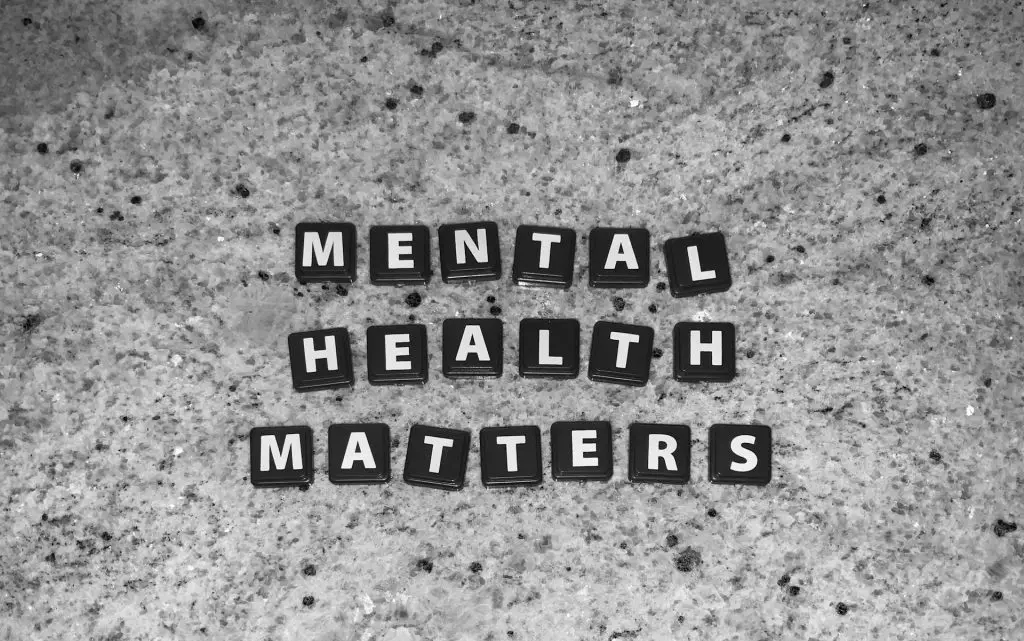Being a teenager is a tumultuous journey. It’s a phase marked by significant physical, emotional, and psychological changes. As a mom, navigating this terrain alongside your teenage child can be both challenging and rewarding. One of the most crucial aspects of parenting during these years is supporting your child’s mental health.
In this guide, we’ll delve into various strategies and tips to help you navigate teenage turmoil and support your child’s mental well-being.

Understanding Teenage Turmoil
The teenage years are characterized by a whirlwind of emotions. Adolescents experience intense feelings of joy, sadness, anger, confusion, and everything in between. This emotional rollercoaster is often compounded by academic pressures, peer relationships, body image issues, and the search for identity.
It’s essential to recognize that these challenges are a normal part of adolescence but can also contribute to mental health issues if not addressed properly. A teen mental health disorder such as anxiety, depression, eating disorders, and substance abuse are on the rise. It is important to highlight the urgency of providing adequate support and resources for young people navigating these challenges.
Recognizing Signs of Mental Health Issues
As a mom, staying attuned to your child’s mental well-being is crucial. Look out for signs that may indicate potential mental health issues, such as persistent sadness or mood swings, withdrawal from social activities, changes in sleep or appetite patterns, declining academic performance, or engaging in risky behaviors.
These signs can be early indicators of various mental health disorders like anxiety, depression, or substance abuse. While these signs don’t always indicate a serious problem, they warrant attention and further exploration. It’s essential to maintain open communication with your child and create a safe space for them to express their thoughts and feelings. Encourage them to seek help from mental health services if needed and provide support and guidance throughout their journey to mental wellness.
Creating a Supportive Environment
Building a supportive environment at home is foundational to your child’s mental health. Foster open communication by creating a safe space where your teen feels comfortable expressing their thoughts and emotions without fear of judgment. Listen actively, validate their feelings, and avoid dismissing their concerns. Encourage healthy coping mechanisms such as journaling, exercise, hobbies, or talking to a trusted adult or counselor.
Additionally, sets clear boundaries and expectations while allowing room for autonomy and independence. Show empathy and understanding, even during challenging moments, and prioritize quality time together as a family.
By nurturing a supportive and understanding environment, you provide your child with the emotional security and resilience needed to navigate the ups and downs of adolescence. Remember that your role as a supportive parent is invaluable in shaping your child’s overall well-being and mental health.

Educating Yourself and Your Child
Take the time to educate yourself about common mental health issues affecting teenagers, such as anxiety, depression, eating disorders, and substance abuse. Understanding these challenges will equip you to recognize warning signs early and seek appropriate help.
Stay updated with reputable sources, attend workshops or seminars, and engage with mental health professionals to enhance your knowledge and skills in supporting your child’s mental well-being.
Moreover, educate your child about mental health to reduce stigma and promote open discussions. Encourage them to express their feelings and thoughts without judgment and teach them coping strategies for managing stress and emotions.
Normalize conversations about emotions and mental well-being within your family, emphasizing the importance of seeking help when needed. By fostering a culture of mental health awareness and support, you empower your child to prioritize their well-being and seek assistance when facing challenges.
Seeking Professional Support
Sometimes, despite your best efforts, your child may require professional support. Don’t hesitate to seek help from a mental health professional if you notice persistent or severe symptoms of mental health issues.
A therapist or counselor can provide assessment, therapy, and guidance tailored to your child’s needs, helping them develop coping strategies and address underlying issues effectively.
Additionally, consider involving your child’s school counselor or healthcare provider in the support process. Collaborating with professionals who have experience working with teenagers can offer comprehensive care and access to additional resources.
Keep an open line of communication with the professionals involved and actively participate in your child’s treatment plan. Remember, seeking professional support is a proactive step towards ensuring your child receives the necessary help and support for their mental well-being.
Addressing Academic Pressures
Academic stress is a common trigger for mental health issues among teenagers. Help your child manage academic pressures by encouraging a balanced approach to schoolwork. Teach time management skills, promote realistic goal-setting, and emphasize the importance of self-care alongside academic achievement. Encourage breaks, physical activity, and hobbies to maintain a healthy balance between academics and relaxation.
Advocate for policies that prioritize student well-being within your child’s school environment. Support initiatives that promote mental health awareness, provide resources for stress management and offer counseling services. Collaborate with teachers and school administrators to create a supportive academic environment that values holistic well-being.
Encourage open communication between school and home, allowing for discussions about workload, expectations, and strategies for coping with academic challenges. By addressing academic pressures proactively, you can help your child thrive academically while prioritizing their mental and emotional health.
Building Resilience
Resilience is the ability to bounce back from adversity. Help your child develop resilience by teaching problem-solving skills, fostering a growth mindset, and reframing setbacks as learning opportunities.
Encourage them to view challenges as opportunities for growth and development rather than insurmountable obstacles. Teach them to break tasks into manageable steps, set realistic goals, and celebrate progress along the way.
Encourage your child to develop healthy coping strategies such as deep breathing, mindfulness, physical activity, or creative outlets. Help them build a support network of friends, family, teachers, and mentors who can offer guidance and encouragement during tough times.
Encourage self-compassion by emphasizing the importance of self-care, positive self-talk, and learning from mistakes rather than dwelling on them.
Model resilience in your own life by demonstrating perseverance, adaptability, and optimism in the face of challenges. Show your child that setbacks are a natural part of life, but with determination and resilience, they can overcome obstacles and achieve their goals. By fostering resilience, you empower your child to navigate life’s ups and downs with confidence and strength.

Supporting your teenager’s mental health is a journey that requires patience, empathy, and proactive efforts. By creating a supportive environment, promoting healthy habits, educating yourself and your child, seeking professional support when needed, and fostering resilience, you can navigate teenage turmoil and empower your child to thrive emotionally and mentally.
Remember that every teenager is unique, and finding what works best for your child may require trial and error. Trust your instincts, stay engaged, and prioritize your child’s well-being above all else. Together, you can navigate the challenges of adolescence and emerge stronger as a family.
DON'T MISS ANYTHING!
FOMO - do you have it? Well there is no need to Fear On Missing Out here at Explore With Erin. Sign up to receive updates directly to your in box. I won’t spam you, but I do promise a whole lot of awesomeness. What are you waiting for? Join Me!
PS: We hate spam too, read our Privacy Policy here.


